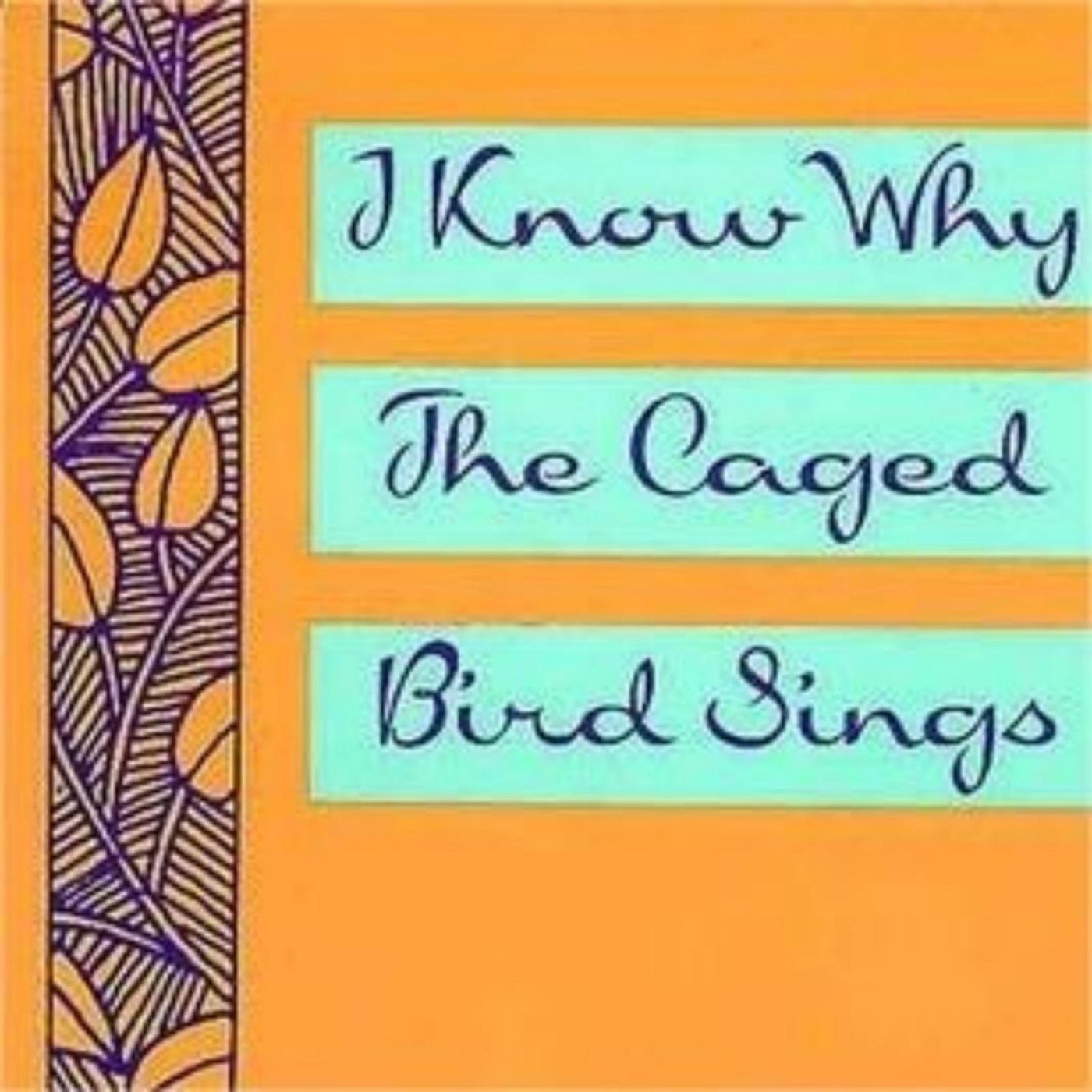
Bloomsbury Guide to Maya Angelou's I Know Why The Caged Bird Sings
 2024-06-27
2024-06-27
Download
Right click and do "save link as"
Chapter 1:Summary of I Know Why The Caged Bird Sings Full Book
"I Know Why The Caged Bird Sings" is a coming-of-age memoir written by Maya Angelou. The book follows Maya's life from her childhood in rural Arkansas to her adolescence in California. Throughout the book, Maya struggles with racism, abuse, and the challenges of growing up as a black girl in the segregated South.
The title of the book comes from a poem by Paul Laurence Dunbar, which reflects the themes of oppression and resilience that run through Maya's own life. As she navigates her way through various traumas and hardships, Maya finds strength in her love of literature and her determination to overcome the obstacles in her path.
Ultimately, "I Know Why The Caged Bird Sings" is a powerful testament to the resilience of the human spirit, and a moving portrait of a remarkable woman who refused to be defined by the circumstances of her birth. Maya's journey serves as an inspiration to readers everywhere, and her story continues to resonate with audiences around the world.
hapter 2:the meaning of I Know Why The Caged Bird Sings Full Book
"I Know Why the Caged Bird Sings" is an autobiography by Maya Angelou that tells the story of her childhood and adolescence. The book explores themes of racism, sexual assault, and self-discovery, as well as the power of literature and writing to heal and empower. Harold Bloom, a literary critic, has written a full book about the significance and impact of Angelou's autobiography, delving into its themes, style, and historical context. Bloom's analysis offers readers a deeper understanding of the book and its enduring relevance.
Chapter 3:I Know Why The Caged Bird Sings Full Book chapters
Chapter 1: In this chapter, we are introduced to the main character, Maya Angelou, as she recalls her childhood in Stamps, Arkansas. She describes the racism and discrimination she experienced as a young black girl, as well as the strong community and support she found within her family.
Chapter 2: Maya recounts her experiences with her brother, Bailey, and their relationship with their parents. She describes their close bond and the challenges they faced growing up in a segregated society.
Chapter 3: Maya and Bailey are sent to live with their grandmother, whom they call Momma, in Stamps. Maya describes her grandmother as a strong and independent woman who provides a stable and loving home for them.
Chapter 4: Maya and Bailey's mother, Vivian, comes to visit them in Stamps. Maya is struck by her beauty and grace, but also senses a distance between them. She explores themes of identity and self-worth as she navigates her relationships with her family.
Chapter 5: Maya experiences a traumatic event when she is sexually abused by her mother's boyfriend. She struggles with feelings of guilt and shame, but eventually finds solace in her relationship with Bailey and her writing.
Chapter 6: Maya and Bailey are sent back to live with their mother in St. Louis. Maya describes the challenges of adjusting to a new environment and the racism they face in their new community.
Chapter 7: Maya finds comfort in literature and begins to develop her love of reading and writing. She describes her deep connection to books and their ability to transport her to new worlds and experiences.
Chapter 8: Maya's relationship with her father, who is absent for much of her life, is explored in this chapter. She reflects on the impact of his absence on her sense of self and her understanding of family.
Chapter 9: Maya's experiences with racial discrimination and prejudice continue as she navigates her teenage years in St. Louis. She grapples with questions of identity and belonging as she confronts the harsh realities of racism.
Chapter 10: Maya graduates from high school and gives birth to her son, Guy. She reflects on the challenges of motherhood and the importance of family in her life.
Chapter 11: Maya begins to find her voice as a writer and activist, inspired by the Civil Rights Movement and the work of black writers and intellectuals. She reflects on the power of storytelling to challenge oppression and create change.
Chapter 12: Maya's journey towards self-discovery and empowerment culminates in her decision to speak out about her experiences of sexual abuse. She finds the courage to confront her trauma and reclaim her voice, embracing her identity as a survivor and a writer.
Chapter 4: 10 Quotes From I Know Why The Caged Bird Sings Full Book
view more
"I Know Why The Caged Bird Sings" is a coming-of-age memoir written by Maya Angelou. The book follows Maya's life from her childhood in rural Arkansas to her adolescence in California. Throughout the book, Maya struggles with racism, abuse, and the challenges of growing up as a black girl in the segregated South.
The title of the book comes from a poem by Paul Laurence Dunbar, which reflects the themes of oppression and resilience that run through Maya's own life. As she navigates her way through various traumas and hardships, Maya finds strength in her love of literature and her determination to overcome the obstacles in her path.
Ultimately, "I Know Why The Caged Bird Sings" is a powerful testament to the resilience of the human spirit, and a moving portrait of a remarkable woman who refused to be defined by the circumstances of her birth. Maya's journey serves as an inspiration to readers everywhere, and her story continues to resonate with audiences around the world.
hapter 2:the meaning of I Know Why The Caged Bird Sings Full Book
"I Know Why the Caged Bird Sings" is an autobiography by Maya Angelou that tells the story of her childhood and adolescence. The book explores themes of racism, sexual assault, and self-discovery, as well as the power of literature and writing to heal and empower. Harold Bloom, a literary critic, has written a full book about the significance and impact of Angelou's autobiography, delving into its themes, style, and historical context. Bloom's analysis offers readers a deeper understanding of the book and its enduring relevance.
Chapter 3:I Know Why The Caged Bird Sings Full Book chapters
Chapter 1: In this chapter, we are introduced to the main character, Maya Angelou, as she recalls her childhood in Stamps, Arkansas. She describes the racism and discrimination she experienced as a young black girl, as well as the strong community and support she found within her family.
Chapter 2: Maya recounts her experiences with her brother, Bailey, and their relationship with their parents. She describes their close bond and the challenges they faced growing up in a segregated society.
Chapter 3: Maya and Bailey are sent to live with their grandmother, whom they call Momma, in Stamps. Maya describes her grandmother as a strong and independent woman who provides a stable and loving home for them.
Chapter 4: Maya and Bailey's mother, Vivian, comes to visit them in Stamps. Maya is struck by her beauty and grace, but also senses a distance between them. She explores themes of identity and self-worth as she navigates her relationships with her family.
Chapter 5: Maya experiences a traumatic event when she is sexually abused by her mother's boyfriend. She struggles with feelings of guilt and shame, but eventually finds solace in her relationship with Bailey and her writing.
Chapter 6: Maya and Bailey are sent back to live with their mother in St. Louis. Maya describes the challenges of adjusting to a new environment and the racism they face in their new community.
Chapter 7: Maya finds comfort in literature and begins to develop her love of reading and writing. She describes her deep connection to books and their ability to transport her to new worlds and experiences.
Chapter 8: Maya's relationship with her father, who is absent for much of her life, is explored in this chapter. She reflects on the impact of his absence on her sense of self and her understanding of family.
Chapter 9: Maya's experiences with racial discrimination and prejudice continue as she navigates her teenage years in St. Louis. She grapples with questions of identity and belonging as she confronts the harsh realities of racism.
Chapter 10: Maya graduates from high school and gives birth to her son, Guy. She reflects on the challenges of motherhood and the importance of family in her life.
Chapter 11: Maya begins to find her voice as a writer and activist, inspired by the Civil Rights Movement and the work of black writers and intellectuals. She reflects on the power of storytelling to challenge oppression and create change.
Chapter 12: Maya's journey towards self-discovery and empowerment culminates in her decision to speak out about her experiences of sexual abuse. She finds the courage to confront her trauma and reclaim her voice, embracing her identity as a survivor and a writer.
Chapter 4: 10 Quotes From I Know Why The Caged Bird Sings Full Book
- “There is no greater agony than bearing an untold story inside you.”
- “If you’re for the right thing, you do it without thinking.”
- “Words mean more than what is set down on paper. It takes the human voice to infuse them with the shades of deeper meaning.”
- “Prejudice is a burden that confuses the past, threatens the future, and renders the present inaccessible.”
- “History, despite its wrenching pain, cannot be unlived, but if faced with courage, need not be lived again.”
- “The idea is to write it so that people hear it and it slides through the brain and goes straight to the heart.”
- “Hoping for the best, prepared for the worst, and unsurprised by anything in between.”
- “The caged bird sings with a fearful trill of things unknown but longed for still and his tune is heard on the distant hill for the caged bird sings of freedom.”
- “We delight in the beauty of the butterfly, but rarely admit the changes it has gone through to achieve that beauty.”
- “There is a very fine line between loving life and being greedy for it.”
More Episodes
012345678910111213141516171819
Create your
podcast in
minutes
- Full-featured podcast site
- Unlimited storage and bandwidth
- Comprehensive podcast stats
- Distribute to Apple Podcasts, Spotify, and more
- Make money with your podcast
It is Free
- Privacy Policy
- Cookie Policy
- Terms of Use
- Consent Preferences
- Copyright © 2015-2024 Podbean.com






